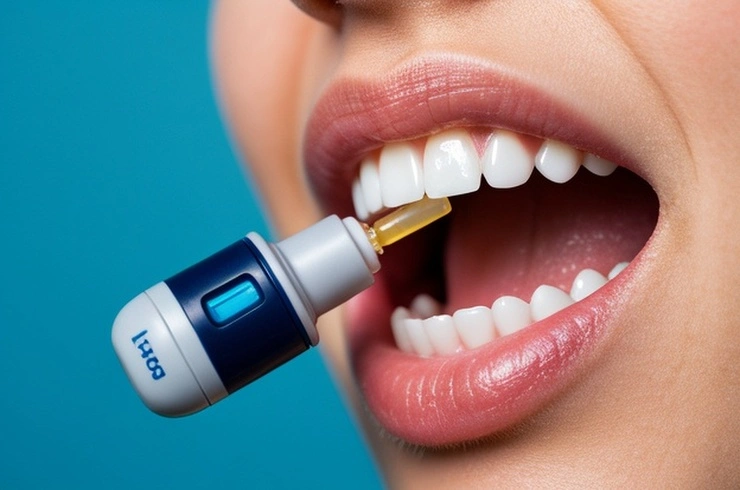
Dry mouth, medically known as xerostomia, is a common and uncomfortable symptom for many individuals living with diabetes. Affecting over 10% of Americans with some form of diabetes, according to the American Diabetes Association, it's crucial to understand its connection to the condition and how to manage it effectively.
Why Diabetes Leads to Dry Mouth
Living with diabetes can increase your susceptibility to dry mouth for two primary reasons:
Frequent Urination and Dehydration: Uncontrolled blood sugar levels often lead to increased urination as your body tries to eliminate excess glucose. This can result in dehydration, a direct contributor to dry mouth.
Medication Side Effects: Certain medications prescribed for diabetes management can impact the function of your salivary glands, reducing saliva production.
Saliva plays a vital role in maintaining oral health by washing away food particles, neutralizing acids, and protecting teeth from decay. When saliva production is insufficient, it not only causes discomfort but also increases the risk of various dental problems, including gum disease and tooth decay.
Effective Strategies for Dry Mouth Relief
Fortunately, several practical approaches can help alleviate the symptoms of dry mouth and protect your oral health:
1. Hydrate and Stimulate Saliva with Sugar-Free Products
One of the simplest yet most effective methods is to ensure adequate hydration. Drinking water regularly helps combat dehydration and performs some of saliva's functions by rinsing away food debris and balancing oral acidity.
Additionally, incorporating sugar-free gums, candies, and lozenges can significantly help. Chewing these products stimulates your salivary glands to produce more saliva. Opting for sugar-free options is not only better for your teeth but also safer for managing your blood glucose levels.
2. Utilize a Humidifier
If you frequently experience dry mouth, especially during the night, a humidifier can be a game-changer. These devices introduce moisture into the air, which can significantly reduce the dryness in your mouth and improve overall comfort. Placing a humidifier in your bedroom or workspace can create a more hospitable environment. Remember to keep a glass of water nearby for extra relief.
3. Prioritize Diabetes Management
The direct link between well-managed diabetes and dry mouth cannot be overstated. When blood glucose levels are consistently out of a healthy range, it can lead to frequent urination and subsequent dehydration, exacerbating dry mouth symptoms.
Controlling your diabetes through a balanced and healthy diet is paramount. Focus on nutrient-rich foods and limit your intake of fats, excessive calories, and refined sugars. If you struggle with managing your diabetes or related symptoms, consult with your medical professional or a registered dietitian for personalized guidance.
4. Maintain Regular Dental Visits
Regular dental check-ups are crucial, particularly if you have diabetes. Dry mouth, if left unaddressed, can heighten your risk of developing serious dental issues like gum disease and dental decay. Your dentist can identify early warning signs, offer specific recommendations for managing dry mouth, and ensure you're taking the necessary steps to prevent complications from chronic lack of saliva. Don't hesitate to discuss any concerns you have with your dental professional.
These four strategies offer excellent starting points for confronting dry mouth discomfort. Combining several approaches often yields the best results. While these tips provide relief, they don't address the underlying causes. Therefore, if you continue to struggle with managing your symptoms, it's always advisable to consult with your healthcare provider. By taking proactive steps, you can effectively alleviate dry mouth and safeguard your oral health.
This article is intended to promote understanding of and knowledge about general oral health topics. It is not intended to be a substitute for professional advice, diagnosis or treatment. Always seek the advice of your dentist or other qualified healthcare provider with any questions you may have regarding a medical condition or treatment.
Pro Tip
The content of the article is shared by netizens, please carefully identify it